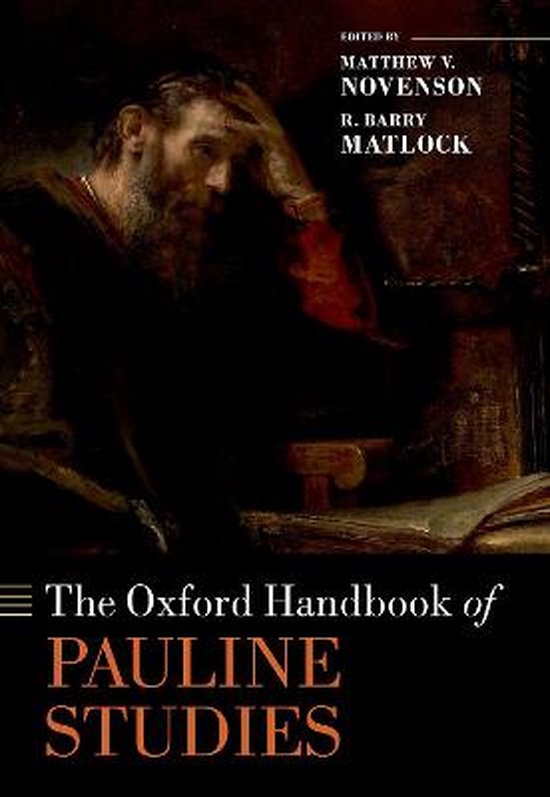
The Oxford Handbook of Pauline Studies
This handbook encapsulates the whole field of research around the apostle Paul - the authentic texts, other ancient texts falsely attributed to him, the numerous early Christian legends about him, and the many meanings that have been and still are made of these texts.
The Oxford Handbook of Pauline Studies brings together a diverse international group of experts on the apostle Paul. It examines the authentic texts from his own hand, other ancient texts falsely attributed to him, the numerous early Christian legends about him, and the many meanings that have been and still are made of these texts to give a twenty-first century snapshot of Pauline Studies. Divided into five key sections, the Handbook begins by examining Paul the person - a largely biographical sketching of the life of Paul himself to the limited extent that it is possible to do so. It moves on to explore Paul in context and Pauline Literature, looking in detail at the letters, manuscripts, and canons that constitute most of our extant evidence for the apostle. Part Four uses a number of classic motifs to describe what modern experts describe as 'Pauline Theology', and Part Five considers the many productive reading strategies with which recent interpreters have made meaning of the letters of Paul. It is demonstrated that 'reading Paul' is not, and never has been, just one thing. It has always been a matter of the particular questions and interests that the reader brings to these very generative texts. The Oxford Handbook of Pauline Studies thoroughly surveys the state of Pauline studies today, paying particular attention to theory and method in interpretation. It considers traditional approaches alongside recent approaches to Paul, including gender, race and ethnicity, and material culture. Brought together, the chapters are an ideal resource for teachers and students of Paul and his letters.
The Oxford Handbook of Pauline Studies brings together a diverse international group of experts on the apostle Paul. It examines the authentic texts from his own hand, other ancient texts falsely attributed to him, the numerous early Christian legends about him, and the many meanings that have been and still are made of these texts to give a twenty-first century snapshot of Pauline Studies. Divided into five key sections, the Handbook begins by examining Paul the person - a largely biographical sketching of the life of Paul himself to the limited extent that it is possible to do so. It moves on to explore Paul in context and Pauline Literature, looking in detail at the letters, manuscripts, and canons that constitute most of our extant evidence for the apostle. Part Four uses a number of classic motifs to describe what modern experts describe as 'Pauline Theology', and Part Five considers the many productive reading strategies with which recent interpreters have made meaning of the letters of Paul. It is demonstrated that 'reading Paul' is not, and never has been, just one thing. It has always been a matter of the particular questions and interests that the reader brings to these very generative texts. The Oxford Handbook of Pauline Studies thoroughly surveys the state of Pauline studies today, paying particular attention to theory and method in interpretation. It considers traditional approaches alongside recent approaches to Paul, including gender, race and ethnicity, and material culture. Brought together, the chapters are an ideal resource for teachers and students of Paul and his letters.
| Auteur | | Matlock |
| Taal | | Engels |
| Type | | Hardcover |
| Categorie | | Religie, Spiritualiteit & Filosofie |